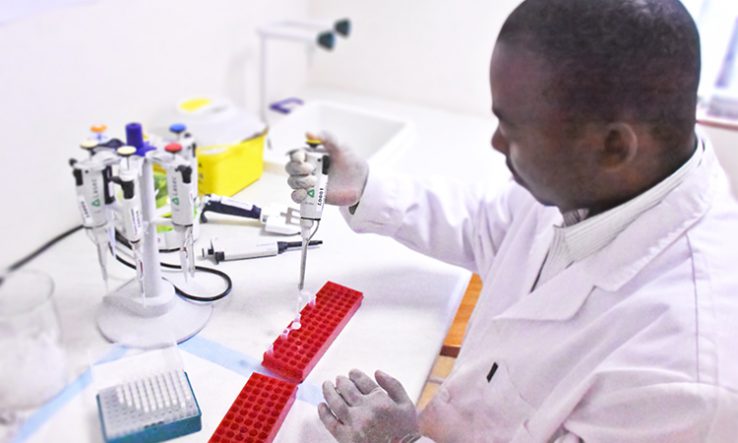
Image: U.S. President's Malaria Initiative, via Flickr
R&D surge now to fight pandemic could yield lasting continental benefits
Research needs to be a core part of Africa’s response to the coronavirus pandemic, a number of leading continental policymakers have said.
Local research on epidemiology, pathogenesis, diagnostics, and Covid-19 management are “important to provide guidance for ongoing approaches to the pandemic”, according to a 5 May editorial in The American Journal of Tropical Medicine and Hygiene. The article’s authors include Matshidiso Moeti, the World Health Organization regional director for Africa, and John Nkengasong, the head of the Africa Centres for Disease Control and Prevention.
“Key public health, clinical, and research goals to mitigate the impact of Covid-19 can be achieved. Ideally, progress toward the mitigation of Covid-19 will lead to long term improvements in African health and research systems,” they write.
This sentiment was confirmed last week by a senior officer at the Africa CDC. “Research will play a role in how we respond to this outbreak,” said Raji Tajudeen, who heads Africa CDC’s division of public health institutes and research, in an exclusive interview.
There are already 29 clinical trials underway on the continent, he said. And research is also being done on ways to optimise the continent’s use of scarce resources like ventilators and personal protective equipment, such as masks and gloves for medical staff. “This research will [not just] guide what we are doing, but also prepare our response to future disease outbreaks,” he said.
By participating in research, Africa will position itself more favourably in terms of gaining access to any treatments found to be effective against Covid-19, Tajudeen said. But he emphasised that a country’s research capacity should not determine its level of access to drugs and other medical equipment.
“Research or no research, that should not define whether countries have access to tests. Nobody should be left behind,” he said.